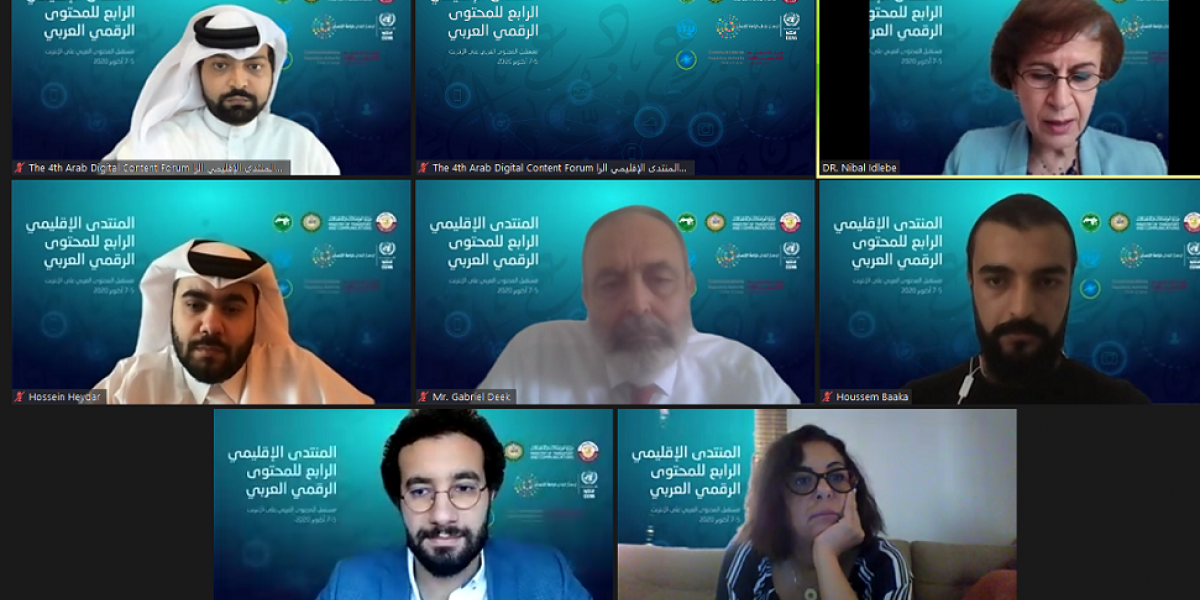Doha – Qatar
The events of the 4th Arab Digital Content Forum concluded in Doha today. The forum was organized by the Ministry of Transport and Communications from Oct. 5 to Oct. 7 under the auspices of the League of Arab States in collaboration with Communications Regulatory Authority (CRA) of Qatar, the Arab Information and Communication Technologies Organization (AICTO), the UN Economic and Social Commission for West Asia (ESCWA) and the ITU.
The event came to an end with a set of recommendations to boost the presence of Arabic language online.
Among key recommendations: the importance of developing and promoting Arabic domains for an easier access to Arabic content, the importance of having a larger Arabic representation in world organizations and entities concerned with the field, the importance of unifying Arabs’ efforts to disseminate the content and the importance of sponsoring and supporting the projects that focus on encouraging innovation in developing and increasing the Arabic content online.
Other key recommendations include the importance of: applying intellectual property protection laws to encourage investment in professional content, providing institutional and financial support to content developers, providing a high-quality Arabic content online to ensure an easy access for Arabic speakers where they can express themselves and share their work in their own language.
Forum speakers also stressed the need for more investment in ICT infrastructure as well as in governments’ current health and economic priorities as the digital gap continues to widen.
Arabic is the fifth most spoken language in the world and one of the six official languages of the UN. Arabic has nearly 13 million total words. Around 422 million people speak Arabic around the world. The internet is used by roughly 100 million Arabs. However, according to forum speakers, global reports say Arabic content online makes up only 3% of the overall world digital content.
The forum’s five online sessions revolved around the reality of Arabic digital content, the importance of Arabic digital content during crises, the future prospects of e-learning in the Arab region, the role of Arabic digital content within a smart nation, the Arabic digital content and entrepreneurship amongst youth and the AI impact on boosting the Arabic content.

